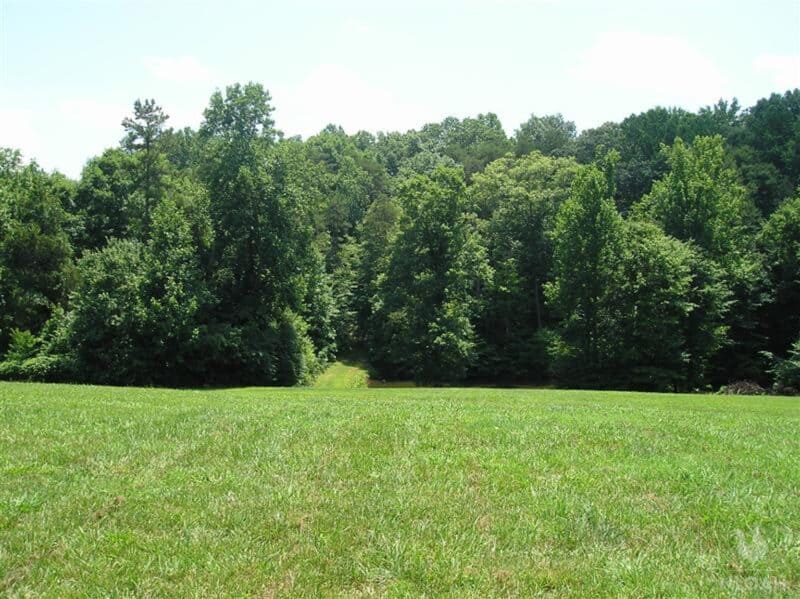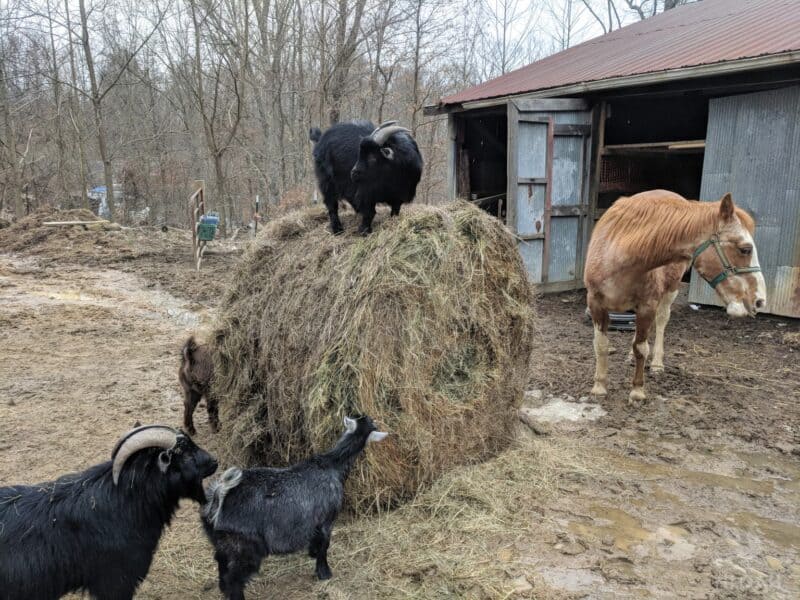The word “ranch” evokes a certain kind of feeling. Ranches have long been an iconic symbol of the American West and Southwest, conjuring images of immense and vast open spaces, scenic landscapes, and cowboys herding livestock.

But these days you see the word tossed around interchangeably with farm, and the truth is that ranches and farms are not quite the same.
For starters, ranches tend to be a whole lot bigger! So, just how many acres is a ranch?
A ranch by most definitions is defined as between 400 to 500 acres or more in size, and devoted primarily to livestock (although there is some variation depending on the region and how it’s managed). In some areas, a ranch may have a specific legal definition.
That is certainly a big range to call your own. Most times, everything about a ranch is bigger, not least of all the sheer size of the property.
In this article, I’ll tell you more about the definition of a ranch and help explain the concept in better detail.
How Big is a Ranch?
How big a ranch is, and can be, depends on the definition you use and who you ask. Some folks stick with the general definition of 400 to 500 acres of livestock land and range.
Others only go by what state and federal authorities say. Others say that any farm property devoted to livestock exclusively is a ranch, regardless of how big or small the parcel is.
All that said, a ranch can practically range:
- from a small, family-owned operation of around 100 acres all the way up to tens of thousands of acres,
- with single owners or multiple owners,
- and with multiple operations running concerning the care, raising, breeding or training of livestock, and all associated endeavors.
Something to keep in mind is that individual states might have their own legal definitions of what a ranch is, including size thresholds and other requirements.
This is further complicated by federal agencies’ definitions and regulations, specifically the USDA.
What’s the Difference Between a Ranch and a Farm?
Another point of contention! Broadly, no, a ranch and a farm are not the same thing, though you can say that a ranch is a farm but a farm might not be a ranch.
First, the definition of farm: A tract of land devoted to agricultural processes and the raising of crops or livestock, with buildings and other structures associated.
Now, the definition of ranch: A large parcel of land used to raise livestock or other animals, specifically including grazing rights and often incorporating buildings, such as barns and other outbuildings.
So while both are generally involved in agriculture at large, and usually for commercial purposes, a farm may be more focused on growing crops while a ranch focuses exclusively on the raising, care and breeding of animals.
Is there a Legal Definition of Ranch?
In some cases, yes. In the United States, the legal definition of a “ranch” varies from state to state, and also for federal entities.
According to the United States Department of Agriculture (USDA), a ranch is defined as a “place where livestock are raised and grazed on public lands, while the residential headquarters and infrastructure are located on private lands”.
Additionally, the USDA’s definition suggests that the animals raised on a ranch must be grazing livestock, such as cattle, sheep, or goats.
This requirement excludes other agricultural animals not raised for grazing, such as pigs or chickens.
Some legal definitions also mandate that a ranch must be a parcel of a certain size, which varies depending on the location.
For instance, in Colorado, a ranch must have a minimum of 160 contiguous acres of agricultural land to qualify for classification as a ranch.
State and municipal zoning laws may also impact the legal definition of a ranch.
For example, some localities may require that ranches be zoned as agricultural or rural residential areas, have certain code requirements, or have restrictions on the number of animals that can be raised on a property.
These may also vary according to the specific state laws governing land use.
Historically, ranching has played a significant role in the United States, particularly in the Western states.
As a result, legal definitions of ranches have been heavily influenced by the history of ranching practices in those areas.
One notable court case that has impacted the definition of a ranch is United States v. Estate of Hage.
In this case, the court held that ranchers have a right to access water and forage on federal lands, which may affect how ranches are defined.
Other practical implications of the legal definition of a ranch can include land use restrictions and taxation.
Specifically, a property classified as a ranch may receive property tax benefits for being used for agricultural purposes.
And, in the end, a ranch might not be defined legally by a single, concise definition, but rather by multiple laws governing the size of agricultural land, grazing of livestock, zoning laws and more. Historical practices and court cases, precedent, will similarly modify the definition.
So, short version, yes, there are legal definitions, just no easy ones!
Are there Small Ranches?
Yes, practically speaking. Just because a ranch might not meet the legal definition for a ranch does not mean that it isn’t properly considered one.
For instance, many smaller agricultural properties devoted to raising animals may be referred to as “mini-ranches” or “hobby ranches”.
Ranches of this kind might be a few dozen acres, a hundred, or a few hundred acres. Falling well short of the “traditional” definition of a ranch, these smaller properties nonetheless still engage in all the usual ranching activities.
If such a property is achievable or attractive to you, there is no reason why you can’t live the lifestyle, even if your ranch doesn’t meet a legal or other arbitrary definition.

Is a Ranch Only for Livestock?
Generally yes, though many ranches are still considered such even if they engage in secondary operations or business related to the raising, keeping and training of animals.
For instance, many horse ranches offer training, tack, or related services. Likewise, cattle ranches may also provide veterinary services to the animals on their land and to other owners.
Some ranchers even go so far as to rent rooms on their ranch for tourists or hunters, and the largest properties might avail themselves for hunting and other activities…
These secondary activities might not fit with a strict definition of ranching but can still be integral parts of a real, working ranch.
As long as the primary purpose of the property is to raise and maintain livestock, it can (and I say should) still be considered a ranch.
Tom has lived and worked on farms and homesteads from the Carolinas to Kentucky and beyond. He is passionate about helping people prepare for tough times by embracing lifestyles of self-sufficiency.
